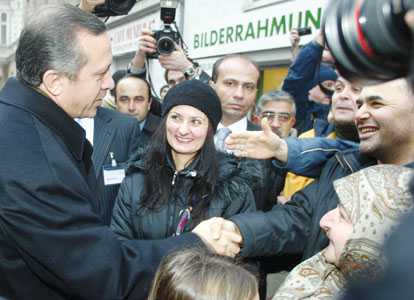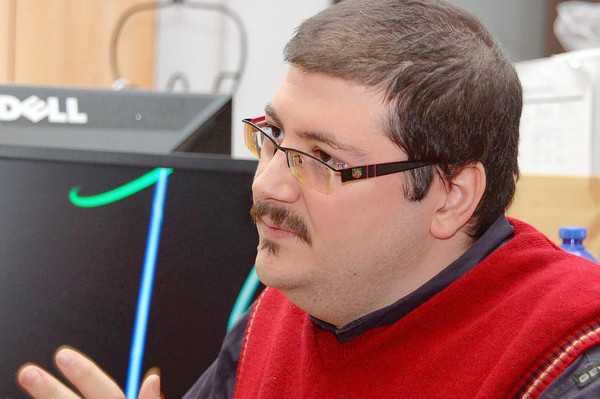By PATRICK MCGROARTY And BERND RADOWITZ
BERLIN—Guido Westerwelle, the embattled head of German Chancellor Angela Merkel’s junior coalition partner, defended his leadership and party Thursday, saying the Free Democrats had helped spur the country’s economic recovery and acted as a bulwark against the leftward drift of German politics.
Mr. Westerwelle, who serves as foreign minister and vice chancellor under Ms. Merkel, has drawn harsh criticism from within the pro-business Free Democratic Party and increasingly dire approval ratings after failing to follow through on a tax-cut pledge and other campaign promises.
The Free Democrats’ plight has also become a headache for Ms. Merkel ahead of a string of regional elections in coming months. A collapse in support for the party could shift control of key states. Such an outcome would give the opposition a wider majority in Germany’s upper house, which represents the country’s 16 states, further hobbling the Ms. Merkel’s legislative agenda and weakening her coalition’s credibility.
“Even Hercules couldn’t turn everything around in a week. But we’ve made a start,” Mr. Westerwelle said at a party conference in Stuttgart. “Germany is doing better than it was before the election…and the (Free Democrats) have done our part.”
Critics have often branded Mr. Westerwelle as arrogant and out of touch, and reaction to the speech suggested he hadn’t done as much as his allies had hoped to improve his image.
“No self-criticism, no new ideas, no new vision,” wrote Roland Nelles, Berlin bureau chief for the news website Spiegel Online, in a commentary posted after the speech. “This was the old Westerwelle: ‘Everyone’s a fool except for me.’ ”
A weekly poll released Wednesday by Stern magazine showed support for the Free Democrats at just 4%, below the 5% threshold required to hold seats in parliament and a shadow of the nearly 15% showing that brought the pro-business party to power in national elections in September 2009. Mr. Westerwelle’s personal approval ratings are equally dire: He garnered a 29% approval rating, a personal low that put him last on the list of politicians respondents were asked to rate.
The Free Democrats spent decades as kingmakers to successive coalition governments before a decisive victory for left-leaning parties in 1998 pushed them into more than a decade of outspoken opposition to the initiatives of center-left and then grand coalition governments.
This was the climate in which Mr. Westerwelle became the youngest person ever to lead his party in 2001. Now 49 years old, he helped convert a deep current of voter dissatisfaction into a record showing for the Free Democrats in the 2009 election, but has since struggled to steer the party from a decade of adversarial rhetoric back toward their traditional role as consensus-builders.
“Naturally, 11 years heading in the wrong direction can’t be forgotten in a year,” Mr. Westerwelle said Thursday of the country’s politics while the Free Democrats were out of power. “But we’ve started to make political change.”
A key stumbling bloc has been the party’s campaign promise to lower taxes. Ms. Merkel put the agreement on hold last spring, as the government became preoccupied by the euro-zone debt crisis and made plans to set an example for the bloc’s weaker members by slashing its budget over the next three years. But key FDP leaders like Economics Minister Rainer Brüderle continued to call for tax cuts, opening the party to critiques that they were inflexible and lacked new ideas.
Mr. Westerwelle addressed the tax dispute carefully Thursday, saying the government would simplify the tax system in 2011 and would pursue tax cuts “if there is room for further tax relief through our consolidation policies, through good economic development.”
Ms. Merkel has had her own tough balancing act to perform since winning re-election in 2009, as Germany’s duty to address debt crises in Greece and Ireland ran up against domestic reluctance to pay for other governments’ fiscal sins. Lately, though, her standing among German voters has improved.
In this week’s Stern poll, respondents delivered Ms. Merkel a 59% approval rating, and support for her Christian Democratic Party and its Bavarian partner, the Christian Social Union, is stable at 34% even as the Free Democrats’ free fall has put them at a disadvantage against a likely alliance of left-leaning parties. A coalition of the Green Party and the Social Democrats would secure 44% of the vote in an election held now, according to Stern.
“The weakness of its coalition partner isn’t pretty for the chancellor,” says Oskar Niedermayer, political scientist at Berlin’s Free University.
The real test will come this spring in a series of regional elections, particularly in the southwestern state of Baden-Württemberg. Plans to redevelop the main train station in Stuttgart, the state capital, have sparked a political crisis that threatens six decades of conservative leadership. A recent poll for the first time showed a majority for a potential coalition led by the Green Party.
In Stuttgart Thursday, where protesters unfurled a banner opposing the train-station project from a balcony as he began his speech, Mr. Westerwelle portrayed the FDP as the main impediment to a slew of victories by left-leaning governments at the state level, and eventually to a national regime change. “We need to fight, if Germany isn’t to be left over to the left,” he said.
Write to Patrick McGroarty at [email protected] and Bernd Radowitz [email protected]
online.wsj.com, JANUARY 7, 2011



 “Unless this Turkish community forming part of the Turkish race which has been the terrible enemy of Hellenism is expelled, the duty of the heroes of EOKA can never be considered as terminated.”
“Unless this Turkish community forming part of the Turkish race which has been the terrible enemy of Hellenism is expelled, the duty of the heroes of EOKA can never be considered as terminated.”

